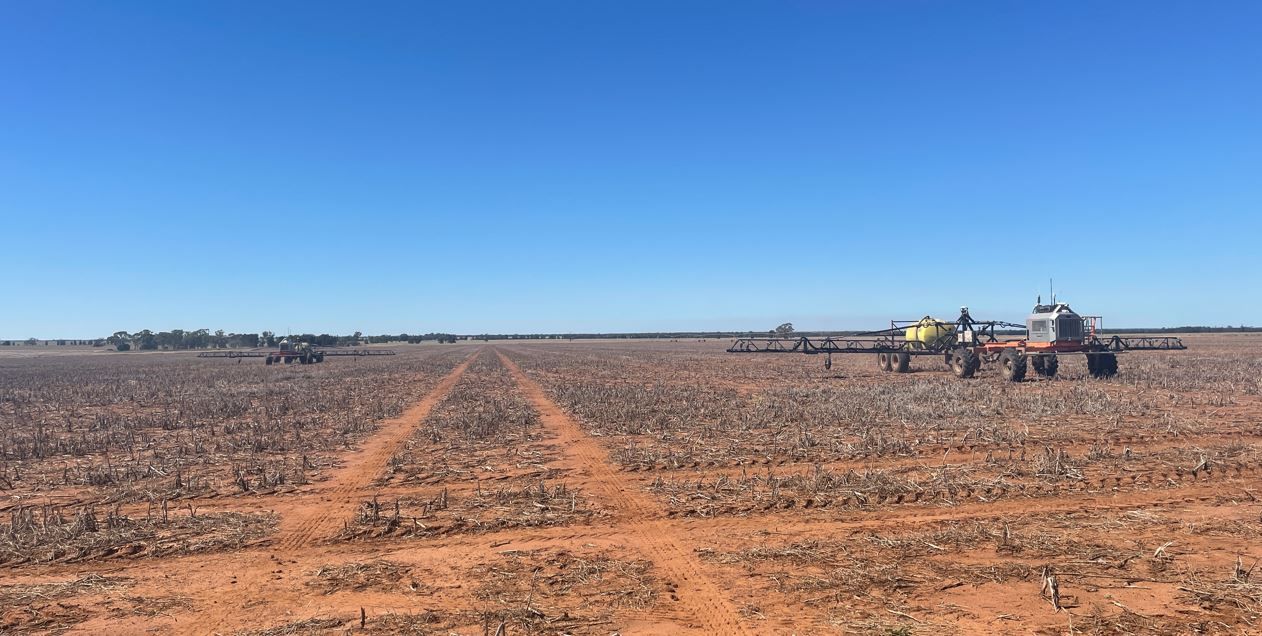Based at Meandarra on the Western Downs in Queensland, Coggan Farms is a 5th generation farming enterprise comprised of 11 properties. The business has both rainfed and irrigated crops, runs 3500 ewes, 600 breeders and has a multi species feedlot with 8000 cattle units and 1000 sheep units. Soils range widely across the properties from rich brigalow-belah soils to redder soils, which at the moment, bog machinery very easily due to the ongoing wet weather.
The Coggan’s have become protein producers but have a preference for grain growing. The ability to vertically integrate, value add and drought proof their properties has helped add value to the bottom line in particular during dry years.
"As our weather patterns have changed we have tended to plant on moisture and availability of water growing grain crops and fodder crops," says Tom.
"This diversity has occurred because of the intensive feeding and the ability to turn off multiple sources of protein. Basically we produce everything for the feedlot except cotton seed supplement. Last year with high protein grain and good price, we took the opportunity to wind back our intensive feeding operation and be prime hard wheat growers for export. The diversification of the business in mixed proteins is a strength of the enterprise."
The family have recently harvested their late sorghum, which was planted in the last three weeks of January early February, and the last was harvested in mid August. This late plant meant they missed out on the hotter days that stressed plants and despite the wet finish they were fortunate to not receive any downgrades. The grain was all dried anywhere from 14-25%. A few years ago, they made the decision to move away from the old trend of planting on certain dates to planting when moisture is available, a move which has served them well over the past two years where rain has not always fallen when they might usually expect to plant. This year’s winter plant occurred over an extended period of time due to weather, from the 2nd week of April through to the 1st week of August.
"The early planted barley will be ready to harvest in three weeks, while the last plant of wheat will have its first fungicide and broad leaf weed application shortly. To change it up we are looking at planting early sorghum in September to take advantage of the high stored soil moisture."

Tom sees big opportunities in automation. They run two SwarmFarm robots with camera spot sprayers over their cropping country, which lowers chemical and fuel costs significantly and with the current challenges around staffing, don’t require a labour unit. Challenges on the horizon include another potential wet harvest and the fluctuating commodity prices which combined with higher input costs could be a concern for some growers. Availability of fertiliser has also proved a challenge this year, which has led them to look at liquid fertilisers, a trial which so far is looking very promising.
To top it off, Tom is also completing a Masters in Agri business at University of Queensland and has recently completed a subject at Mannhein business school in Germany. While there, he had the opportunity to visit the German machine company Horsch and was lucky enough to get on their family farms in both Germany and Czech Republic and witnessed the harvest of a 12t dryland barley crop and some development of future ag tech.
